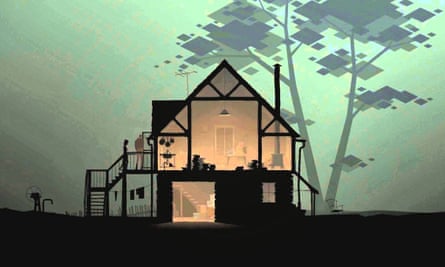It’s an unfortunate feature of working as both a novelist and a games designer that I end up sitting through a lot of panels, round-tables, conferences, discussions and other exercises in head-nodding where digital people try to get to grips with storytelling, or where story people try to understand the digital world.
Both these types of event have their aggravations. When digital people run workshops or colloquia or jams (there are infinite names for the basic principle of bringing people together in combination with coffee) about storytelling, they often seem not to notice that quite a lot of very clever people have been thinking very hard about stories for, oh, the past 3,000-4,000 years. I’ve heard people suggest that maybe stories have a “pattern” or “structural ordering” that holds together their parts, without apparently realising that a lot of people have written about this, from Aristotle on.
And let’s not even get on to the people who say things like “data is a story”, “products are a story”, “your robo-vacuum cleaner has a story to tell you”. No it isn’t, no they’re not, and no – unless artificial intelligence has come on much faster than anticipated – it doesn’t.
But more aggravating even than this are the forums, summits, breakout sessions and seminars on “digital literature” run by exceedingly well-meaning arts people who can talk for hours about what the future might be for storytelling in this new technological age – whether we might produce hyperlinked or interactive or multi-stranded novels and poems – without apparently noticing that video games exist. And they don’t just exist! They’re the most lucrative, fastest-growing medium of our age. Your experimental technological literature is already here; it’s the noise you’re trying to get your children to turn down while you pen your thoughts about the future of location-based storytelling.

When I bring this up with arts and literary types, I often get the sort of “oh come, come” response that can only emerge from someone who has no familiarity whatsoever with what video games are, have been, and can be. “You can’t claim that Grand Theft Auto has literary merit,” they say. Maybe you can – plenty of people have – but no, I wouldn’t cite GTA as fascinating experimental literature any more than I’d cite robo-Godzilla-fighting blockbuster Pacific Rim as an example of avant-garde film-making (it’s fun though).
But are there video games experimenting with more interesting storytelling than any “digital literature” project I’ve seen? Yes, certainly. And if you want to think of yourself as well read, or well cultured, you need to engage with them.
To pick just 10 examples from recent years, it’s hard to imagine how you could opine on the future of literature without having played the brilliantly characterful and fourth-wall breaking Portal, the sombre and engrossing Papers, Please, or the dazzlingly surreal exploration of the American subconscious, Kentucky Route Zero. Are you interested in discussing experimental “read it in any order” literature? Then for goodness’ sake, play the mystery narratives of Her Story and Gone Home and the hilarious and unsettling The Stanley Parable. If you want to talk about how writers can engage with politics, capitalism, or the environmental movement, you’ll be showing your ignorance if you haven’t played Oiligarchy.
Interested in how storytellers can engage with themes of mortality? You’ll want Spider: The Secret of Bryce Manor, or Jason Rohrer’s short, powerful game Passage, or the sublime Journey. Each of these games could – and probably should – be taught in schools to inspire the next generation of creators.
The problem is that people who like science and technology, and people who like storytelling and the arts have typically been placed in different buildings since about the age of 16. We haven’t been taught how to admire each others’ work, to recognise excellence, or even to know that there is excellence in “the other culture”. There’s a kind of sullen arrogance on both sides, with some people in both camps simply denying that the other knows anything worth listening to. There is a kind of “worthy” arts professional who thinks that knowing nothing about games – like saying “I don’t even own a television!” – is a marker of intellectual superiority.
But we can’t afford that kind of thinking any more. Being culturally educated about video games is as important as going to museums or learning about opera. Games often manage to be both great art and an economic powerhouse; we’re doing ourselves and the next generation a disservice if we don’t take that seriously.

Comments (…)
Sign in or create your Guardian account to join the discussion